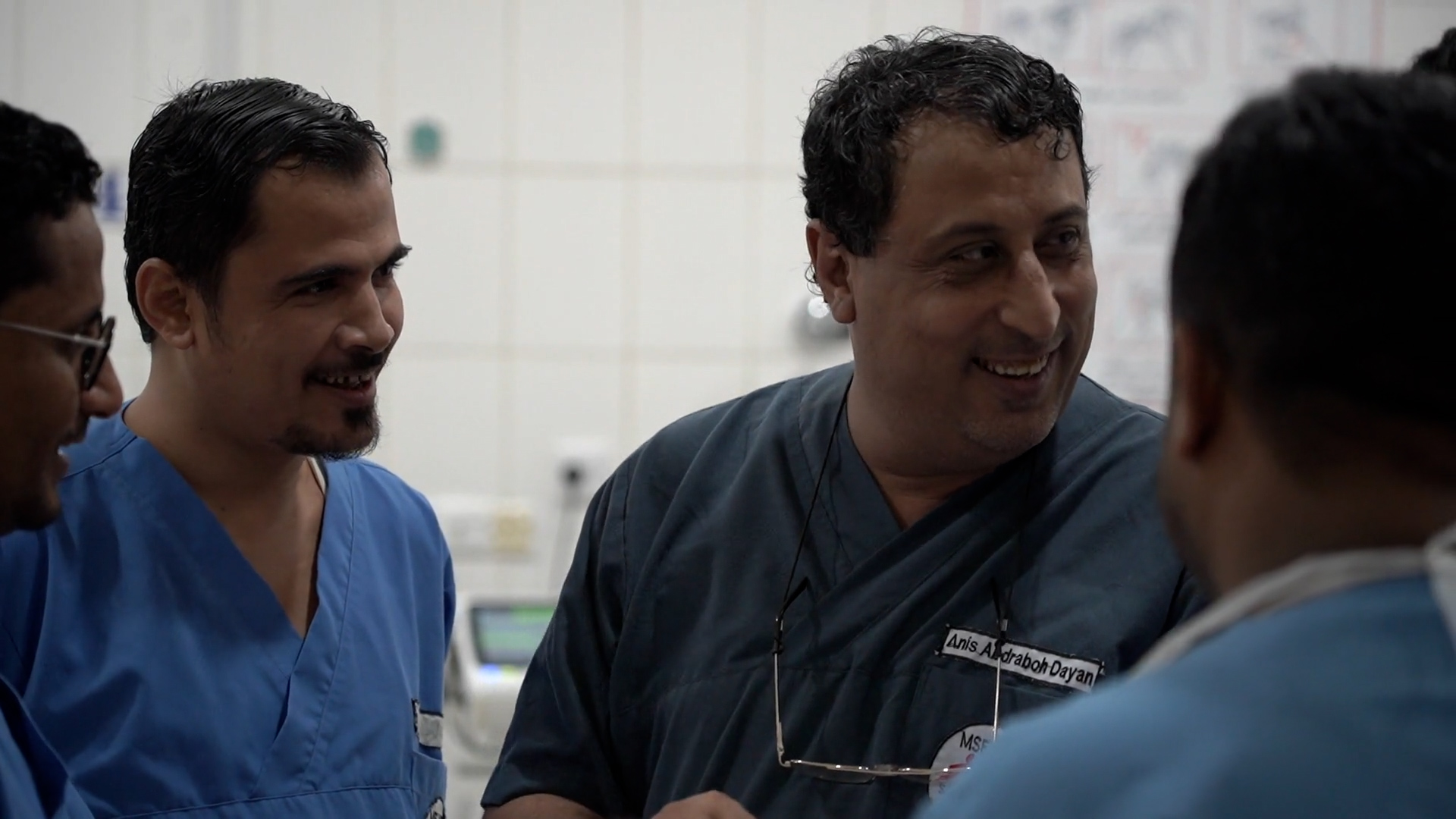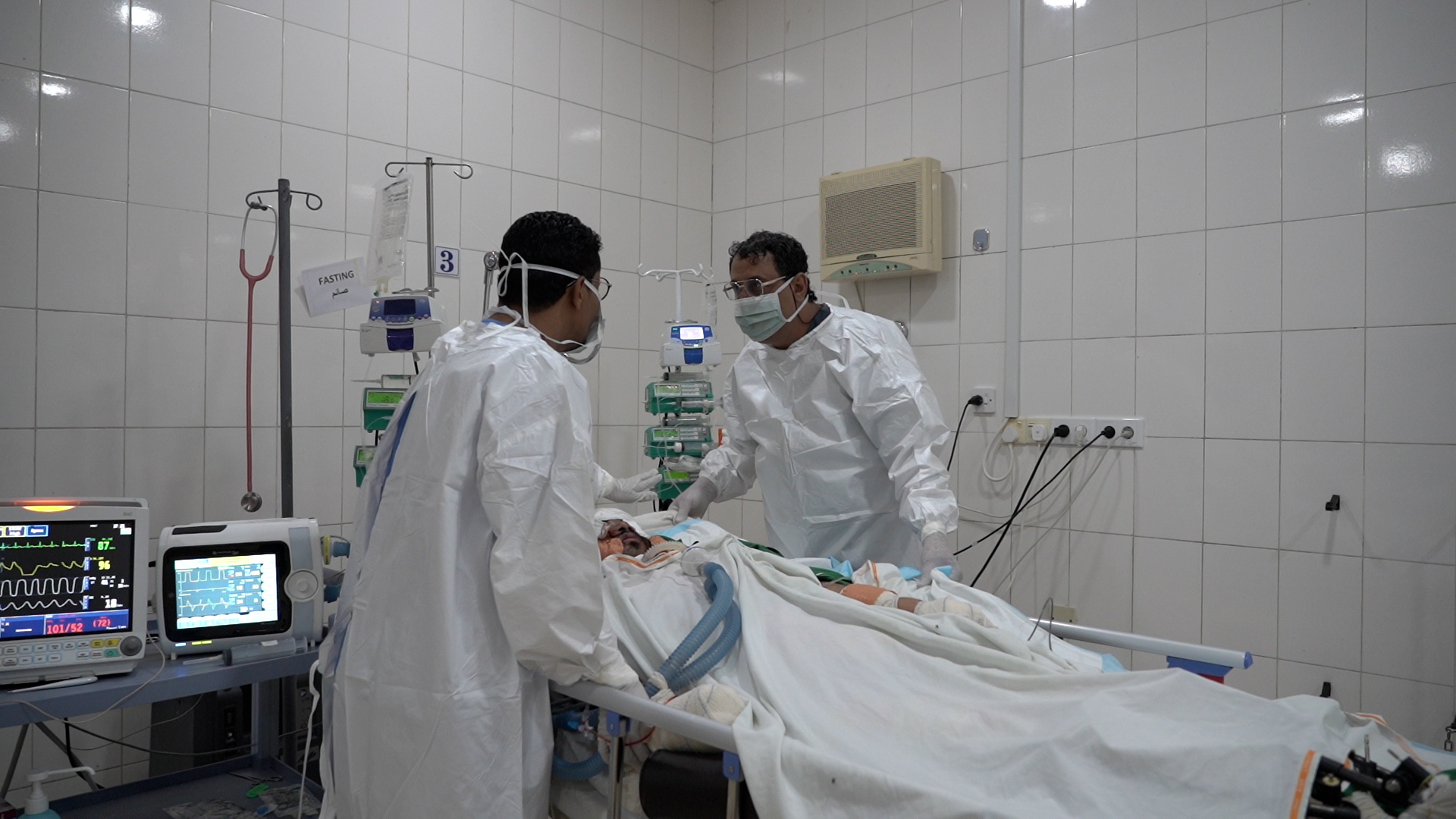A dedicated nurse providing care in Yemen: I felt like I was experiencing a shift

In the Médecins Sans Frontières (MSF) Trauma Centre in Aden, Yemen, nurse Anis AbdRaboh Dayan has been witness to the brutal toll of gun violence and civil war on adults and children.
Anis has been working as an intensive care nurse in MSF’s trauma centre for almost its entire 11-year history. He has reflected deeply on the impact of war, and nursing.
“The world has become so many wars, so many disasters. Grief is ravaging this small world. So to plant a smile on a sad face would be a very beautiful thing. You'll feel satisfied, and you will feel that you're human in all sense of the word, and practising your humanity.”
A young boy’s legacy
Anis was inspired to become a nurse after his own medical emergency as a young boy. “I fell to the ground, developing a bleeding wound. I was in so much pain. That's when a nurse at the emergency department received me. He treated me very nicely, eased my fear, bandaged me and gave me medication. I loved nursing from that day on.”
As an adult, it’s another young boy’s story that has left an indelible mark on Anis, and his colleagues.
“I will never forget, as long as I'm alive, a little boy about five years old. He came from a distant village with a gunshot wound to the abdomen. It took a lot of time until he arrived and he lost a lot of blood. The lack of blood led to a lack of oxygen in the brain, resulting in brain dysfunction.
“He couldn’t walk and couldn’t talk. As the nursing team in the intensive care department, we developed a treatment plan [for him]. Besides the medication, the therapeutic part, we thought about psychological support, and bought him games, in addition to allocating time to sit with him and sometimes with the family and the child, trying to draw him out.
“But the miracle happened. It was a beautiful feeling, and most of us cried. He got out of his bed... And he started walking in front of us. And he thanked us, with his eyes, lips and hands, pointing at us.”

Stepping up to intensive care
“I started in the inpatient department taking different training and exercises in dressing and giving injections and figuring out how to work in accordance with the protocols,” says Anis. “Then I moved to the intensive care department, which is a very sensitive department.”
Designated as level three, the Aden ICU provides the highest level of advanced critical care in MSF. The team sees trauma affecting people’s chest, abdomen, pelvic area, feet, hands and blood vessels. Many patients have experienced dangerous delays in reaching the hospital, which complicates their condition.
For Anis, it was an important and exciting step to move into the ICU—particularly as there aren’t many opportunities for nurses to advance their careers in Yemen.
“[MSF’s] theoretical and practical exercises and training were at the highest level,” he says. “I gained more experience in terms of mechanical ventilators for the patient, and how to deal with a patient who suffers from a vascular injury, or after large and complex operations such as laparotomies. I felt like I was experiencing a shift, a turn [in my life]. It was new! It forced me to have more skills.”
Greater recognition for nurses still to come
According to Anis, nurses are still underestimated and under-recognised, but it’s time for that to change. “Challenges remain with any great work you do. The obstacles are many. First and foremost, society's lack of understanding of the concept of nursing, that the nurse's work is limited to giving injections and dressings only. But it's so much more than that. “
“Therefore, the vision must expand and become clearer about the nursing profession, and give it its rightful place, because it is an influential part of this society and all humanity.”
The MSF Trauma Centre in the southern coastal city of Aden, Yemen, was opened in 2012 to manage patients suffering acute trauma due to active conflict. The hospital provides general and orthopaedic surgery (excluding neurosurgery, maxillofacial, ophthalmology) as well as mental healthcare, physiotherapy, and laboratory and microbiology services. In 2022, 392 patients received care in Aden ICU.





Leave a Comment